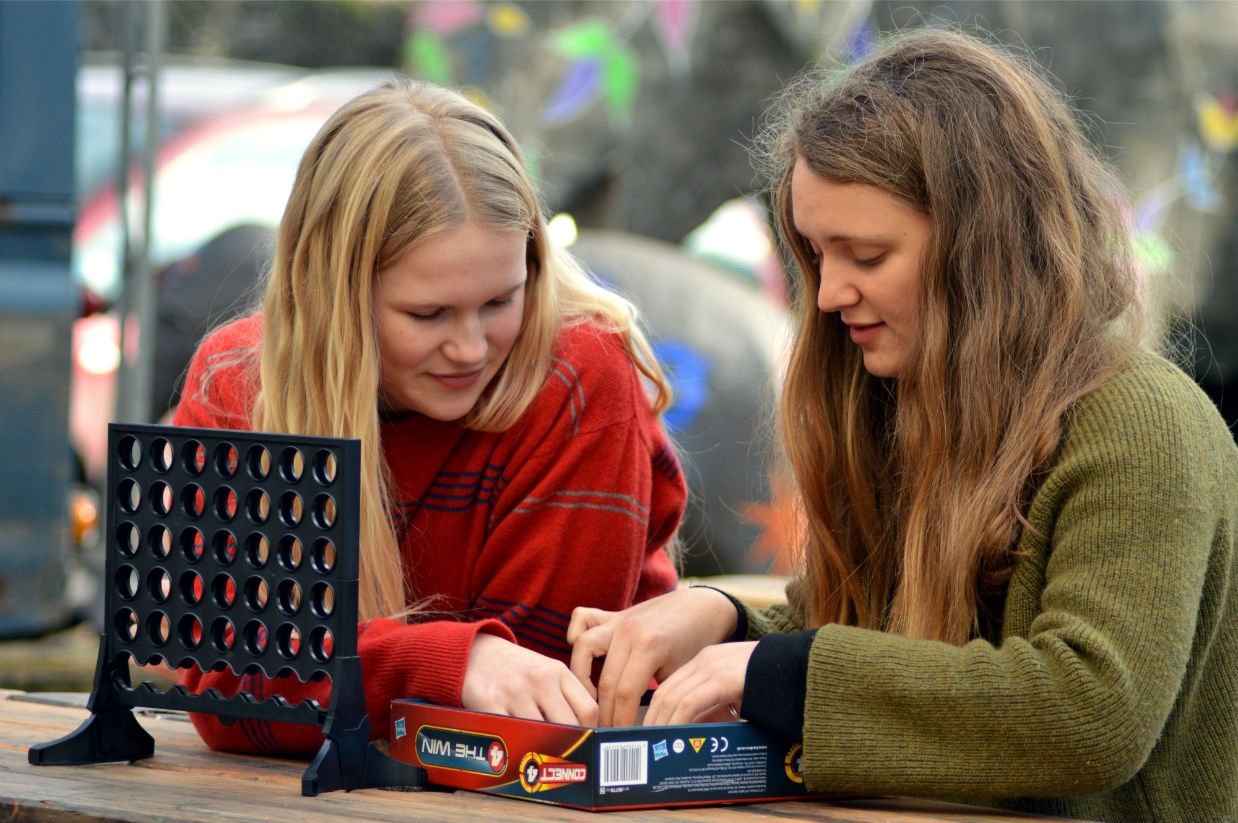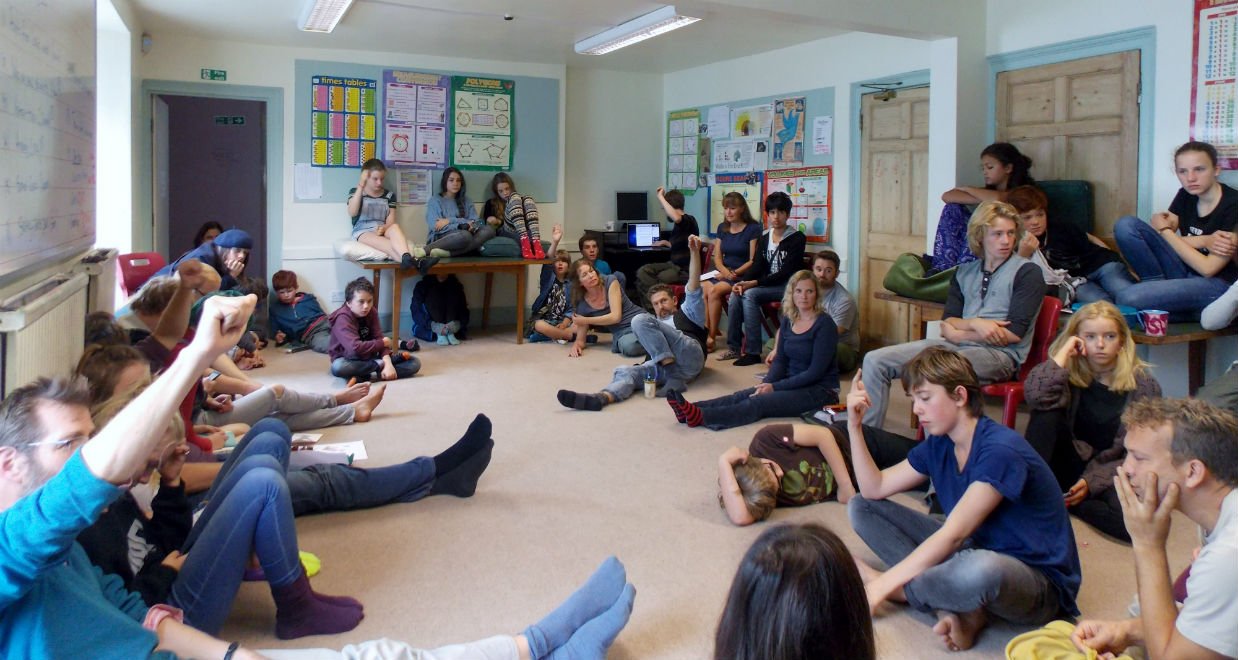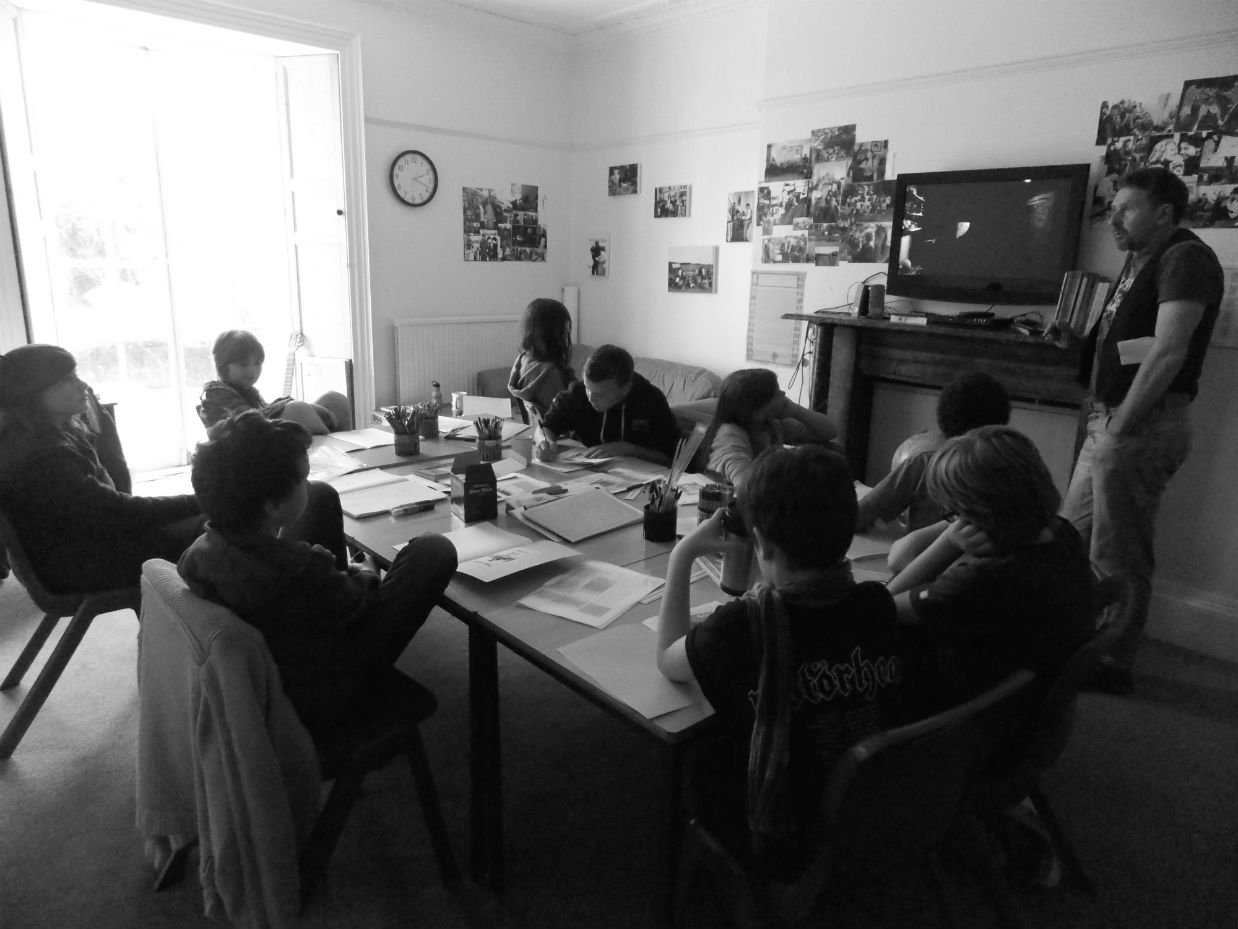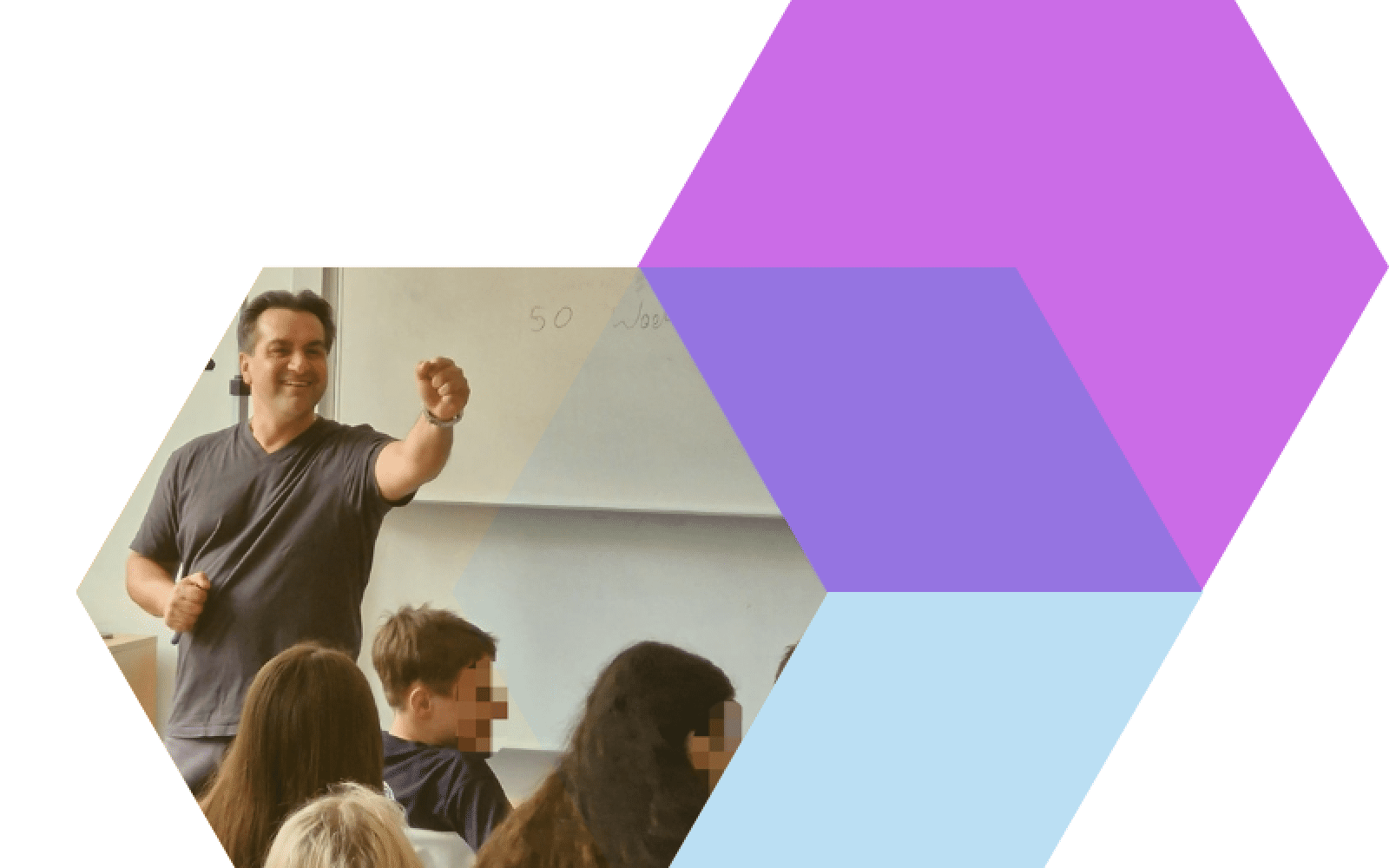There Is A Simple, Underlying Ethos To Sands School’s Approach To Education: In Order To Learn Effectively, Students Must Be Happy. Founded In 1987 By 14 Students And Three Teachers, Sands Has Always Believed That The Key To Ensuring Students’ Happiness Is Through Social Democracy.
Sands is a non-hierarchal, democratic school, based on equality and respect, where students and staff make decisions on the running of the school together – from every day rule breaking to the hiring and firing of teachers.
Students, ages 11 to 17 years old, are taught up to GCSE level and are allowed to choose what they study and whether they attend lessons, and are allowed to sit exams when they, as individuals, are ready. In addition to academic subjects, Sands also focuses on practical life skills such as cooking, debating, cleaning and building.
What are the effects of an alternative, democratic education like the one offered at Sands? Two students – Esme Shea, 20, a former student who now studies Contemporary Dance at university, and Megan Bellamy, 16, who is in her final year and studying for 9 GCSE’s – reflect on how their experiences at Sands have shaped their personal development, their approach to learning and their life outside of the school.

Approach to education
Esme: During my first term [at university], I was taught by a member of the faculty who I believed was inadequately qualified, confused in her delivery and uninspiring. Having responsibility for my own learning at Sands meant that I was actively and critically involved in my choices and I was encouraged to make my experience as a learner the best it could be. I had taken part in staff appraisals and staff appointments and I think that I now recognise good teaching when I experience it. The experiences I had at Sands meant that I was prepared to recognise and confront the poor teaching I was receiving at my university. I met with the Head of the Department, explained my difficulties, and suggested ways to improve and support the teaching.
Megan: We have some brilliant teachers who inspire us and we are also happy to tell them that. I reckon that if you learn to recognise good teaching and want it, it must be a great skill for life. People tend to think that students at Sands can’t be very serious about learning because we are allowed to choose when and what we study. I suppose adults would think we would take the opportunity to mess around. But the opposite is true – we take our choices really seriously, and we take our lessons equally seriously.
Esme: I experienced some exceptional teaching at University, which I felt was important to acknowledge as well. I don’t want it to sound as if we are indulged and demand only the best. What I am trying to say is that if you take responsibility for your learning it is also a prerequisite that you take responsibility for the quality of teaching you receive. Sands asks you to be aware, critical and remain observant about all sorts of things and one of those things is the teaching.

Sands and the real world
Esme: Beginning university and leaving home for the first time, I realised I have learnt some amazing life skills [at Sands]. I decided to move into a small apartment with another Sands student and we felt we could be self-sufficient and could cook creatively with organic produce for ourselves.
Megan: I have been volunteering at Oxfam since I was 14 and now have a paid job, cook at home and take my share of house work. It’s as if being at Sands is real, the real world doesn’t get shut out like in other schools.
Freedom to be yourself
Esme: When you’re at Sands, you don’t have to pretend to be someone else. You don’t have to be the perfect pupil. You don’t have to be anyone but yourself – and that means it feels real and real thing happen all the time.
Megan: Like deciding what to do, what to wear, what to study, how hard to work and then what works and what isn’t working, and how to change things to make them better. If we pretended things were perfect, or we weren’t allowed to criticise, then how would we learn how to change those things?

This conversation was edited by Ellen Goodman, Ashoka UK. Sands School was elected an Ashoka Changemaker School in 2015. One of its founding members, Sean Bellamy, is a finalist for the 2016 Global Teacher’s Prize. For more news from the Ashoka network, subscribe to our newsletter or follow us on Twitter.
This article first appeared on Virgin.com on 18th January 2016
